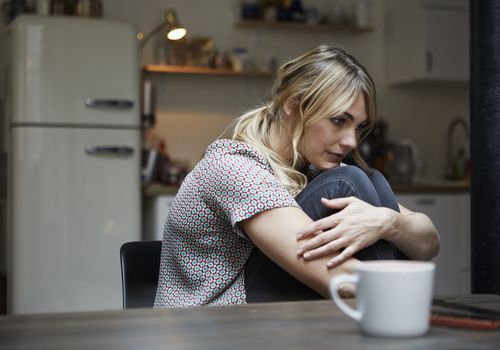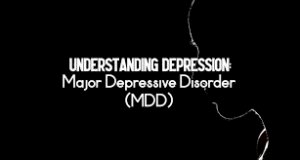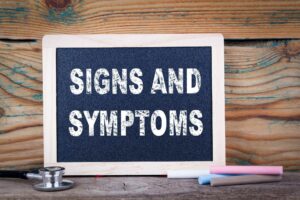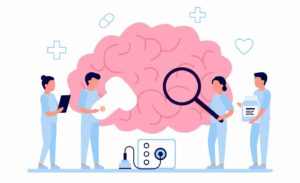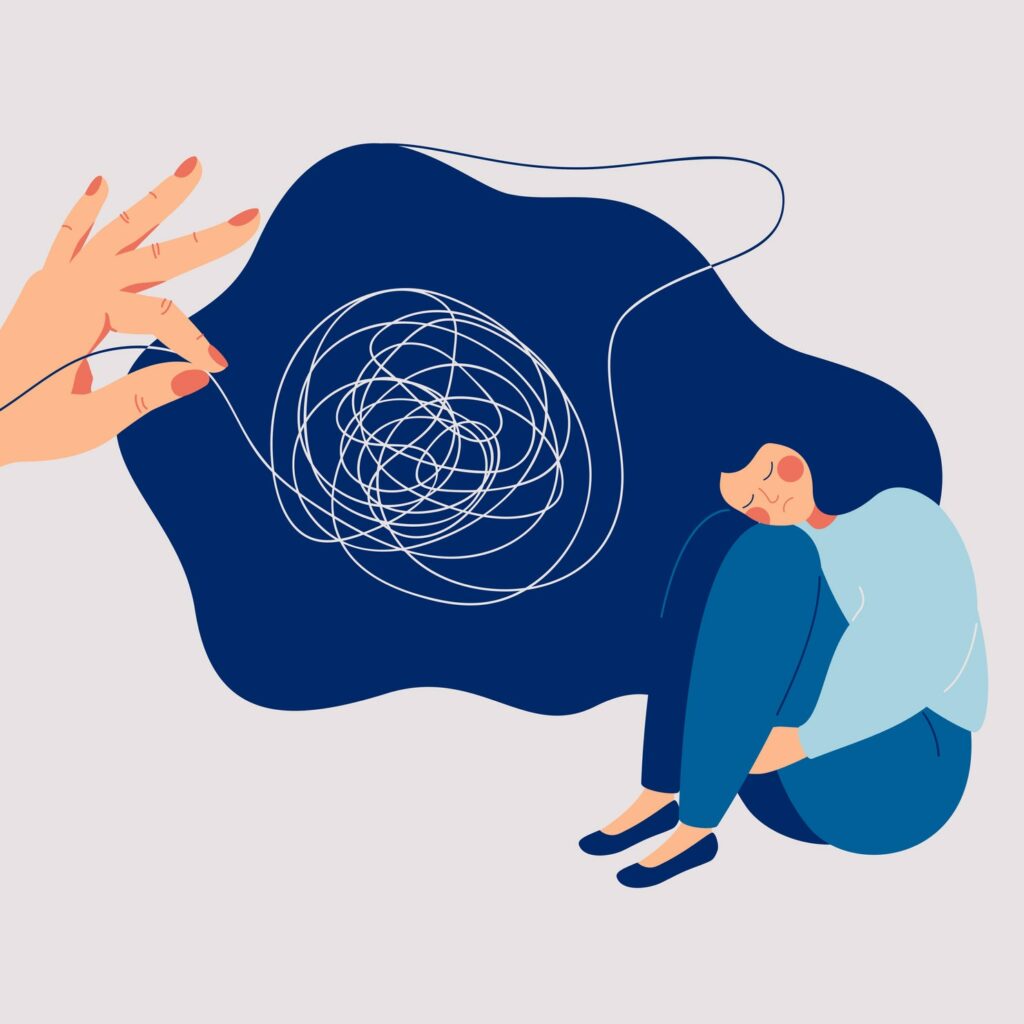Major depression is a serious illness that affects millions of people in the United States and around the world. Left untreated, major depression can last for years and lead to other medical problems such as heart disease, stroke, or cancer. If you think you may be suffering from major depression, please consult your doctor immediately. However, there are also many things that you can do on your own to help manage this debilitating disorder. In this blog post, we will talk about strategies for managing major depression on your own.
Contents
- 1 Understanding Major Depression
- 1.1 Types Of Major Depression
- 1.2 Symptoms Of Major Depression
- 1.3 Causes Of Major Depression
- 1.4 Diagnosis Of Major Depression
- 1.5 Treatment Of Major Depression
- 1.6 Risk Factors Of Major Depression
- 1.7 Do’s And Don’ts For Those Who Know Someone With Major Depression
- 1.8 Tips On How To Help A Friend Or Family Member Who Is Depressed
- 2 Conclusion
Understanding Major Depression
Major depression is a common mental illness that can affect anyone at any age. Symptoms of major depression include feelings of sadness, anxiety, irritability, and loss of interest or pleasure in activities once enjoyed. This disorder often interferes with the quality of life for those who suffer from it as well as their families and friends. The best way to get rid of depression is to take medication. But it is also important to go with psychotherapy (treatment of emotional problems by psychological methods).
Types Of Major Depression
There are several different types of major depressive disorders which include:
- Major Depressive Disorder (single episode or recurrent): This type of depression is diagnosed when a person has one or more episodes of major depression during their lifetime.
- Dysthymic Disorder: This type of major depression is diagnosed when a person has been feeling sad for two or more years. It is not as bad as a major depressive episode.
- Bipolar Disorder (I, II, or NOS): This type of major depression is diagnosed when a person has symptoms of both mania and depression. Mania is characterized by elevated mood, excessive energy, racing thoughts, and decreased need for sleep.
- Postpartum Depression: Women can get a type of depression after they give birth. This is called postpartum depression and includes symptoms such as extreme sadness, anxiety, tiredness, changes in eating habits, and problems concentrating.
- Suicide: This type of major depression is diagnosed when a person has feelings that life isn’t worth living and may attempt to take their own life as a result. Suicide is a big risk for people who have tried suicide before. It also can be a risk for people who talk about it and say they want to do it.
Symptoms Of Major Depression
Symptoms of major depression include feelings of sadness, anxiety, irritability, and loss of interest in activities once enjoyed. Other symptoms may include:
- Weight gain or loss (usually a change over time)
- Fatigue or low energy
- Difficulty concentrating or making decisions
- Insomnia or excessive sleepiness
One would most likely see these symptoms for two weeks to one month. People who have these symptoms might also have other signs, like changes in appetite, weight, feeling tired or guilty. They might think that it is better to die than live. They might find it hard to think clearly or make decisions. If you think someone is having the above mentioned, you should not wait to get help from a mental health professional. A person shouldn’t feel embarrassed about seeking help for depression, it is a very common problem.
Causes Of Major Depression
There is no single known cause of major depression. Rather, it likely results from a combination of genetic, environmental, and psychological factors.
- Genetic Factors: It is estimated that 40-60% of the risk for developing major depression is due to genetics. This means that if someone has a parent or sibling with major depression, they are more likely to get it themselves.
- Environmental Factors: When something big happens in your life like when somebody dies or you get divorced, it can cause depression. If you are already vulnerable to depression, it can happen. Additionally, chronic stressors such as poverty or unemployment can increase the likelihood of developing this illness.
- Psychological Factors: Negative thinking can make you feel sad. Stress can make you feel very, very bad. If these things happen, the chance of major depression is higher..
Diagnosis Of Major Depression
There are no laboratory tests to diagnose major depression, making it difficult for doctors to distinguish between this disorder and other mood disorders. To find out what is wrong with someone, the doctor talks to them. The doctor asks them questions and listens to their signs and symptoms.
Treatment Of Major Depression
For someone who has depression, there are three different treatments that can help. There is medicine (such as antidepressants), counseling (or talk therapy), and electroshock treatment. There are many different types of interventions that can make people feel better when they are depressed. But only half the people who go to get help for their depression feel better afterward. Doctors say that you should talk about treatment before you decide how to proceed. Not everyone responds the same way to different treatments.
- Medication: Antidepressants can help treat major depression. They usually work well for people who only have a few episodes of depression each year. However, antidepressants do not work as well for people with more severe or chronic depressions.
- Psychotherapy: Psychotherapy is a form of treatment in which patients talk about their thoughts and feelings with a therapist. This can be done in an individual or group setting.
- ECT: Electroconvulsive therapy (ECT) is a treatment that uses an electrical current to cause a seizure while the patient is under anesthesia. Sometimes people have not gotten better from other treatments. Doctors may use ECT to help them feel better. This is a type of treatment that can help people who are at risk of committing suicide.
Risk Factors Of Major Depression
While anyone can develop major depression, people with a family history of the disorder are at greater risk. Other factors that may increase one’s chances of developing this illness include:
- Living alone or being unmarried
- Low socioeconomic status
- Having experienced physical or sexual abuse in childhood
- People who have had a bad experience with a disaster, war, losing both parents, or have experienced more than one loss in six months can get very sad. People might not have much support. They might even be stressed all the time.
Do’s And Don’ts For Those Who Know Someone With Major Depression
- DO learn more about the disorder so you can better understand what they are going through and be able to support them. For example, encourage them to seek help or watch for symptoms of relapse.
- You should not tell someone with major depression that their feelings are not real, or that they will just go away on their own. You should also try not to say negative things about how they feel. Also, do not think you are responsible for the mood of someone else.
- DON’T minimize someone else’s problems by focusing only on your own issues since this can make the person feel alienated;
- DON’T expect them to be able to motivate themselves or solve their problems when they are in a depressed state
Tips On How To Help A Friend Or Family Member Who Is Depressed
- Talk with your friends when they are feeling sad. Ask questions that focus on their emotions and feelings, not solutions. Show empathy for them and do not say things like “I know how you feel”. That might not be true if someone has cancer, but it is ok to say “I am here for you.”
- DON’T give up on them; be there for them as long as they need you and continue to check in even after they’ve seemingly recovered.
- DO try to involve them in fun activities or outings, even if they’re not in the mood; this can help improve their mood.
Conclusion
If you are struggling with depression, please seek help. It is not your fault and it does not mean that there’s something wrong with you. You deserve to be happy too. There are ways for people who suffer from the major depressive disorder to feel better again. The first step is talking about what’s going on in your life so someone can give you helpful advice or support. When you go to the doctor and it helps you, your friends and family members will also be happy. You will get a chance at living a good life again instead of being sad all day long. Depression is when your mood isn’t good. When someone feels depressed, they might have a hard time feeling happy when they are with other people. It is important to get professional help because there are many treatments available. But not everyone will respond well to the same treatment. Your doctor or therapist can help you with this. They will figure out which kind of medication might work better for you and whether therapy would be helpful too.
For more information, please contact MantraCare. Depression is a mental illness characterized by persistent feelings of sadness, hopelessness, and loss of interest in daily activities. If you have any queries regarding Online Depression Counseling experienced therapists at MantraCare can help: Book a trial Depression Therapy session
